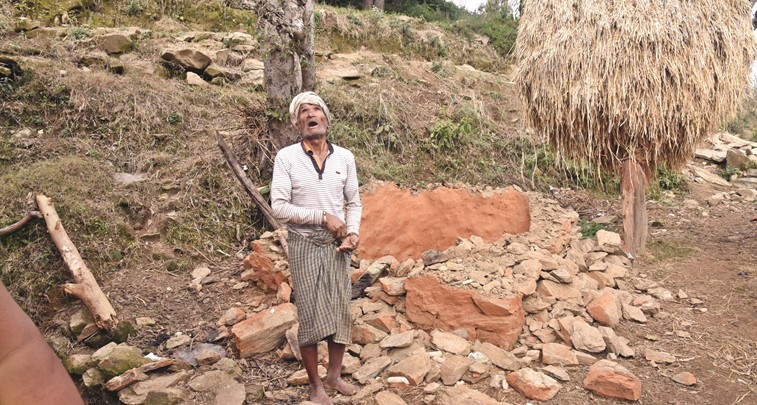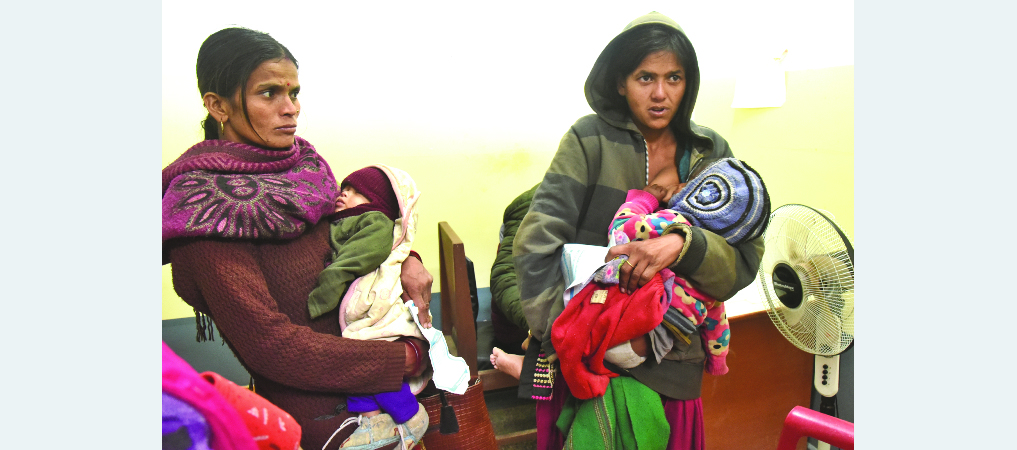Self-examination vital to keep oral cancer at bay

Kathmandu, Feb. 11: Oral cancer is most common preventable cancer worldwide and the burden of the disease is high in South Asian countries including Nepal.
Oral cancer is easily preventable and treatable if diagnosed early. However, most of the patients are not diagnosed until it reaches the late stage and only half of those that develop the disease manage to survive few years, said Dr. Prakash Budhathoki, Oral and Dental expert.
According to doctors, major risk factors for oral cancer are consumption of tobacco, smokeless tobacco and alcohol. Other risk factors are the consumption of betel quid and areca nuts, poor oral hygiene, various viral and bacterial infection, poor nutrition, deficiency of vitamin A, E and C, weakened immune system and genetic.
In the majority of the cases, the symptoms are painless visible changes in the mouth, which is pre-cancerous wounds such as a whitish or reddish stain of the mucosa, an ulcer, or a swelling, said doctors.
Other symptoms include, frequent bleeding in the mouth, numbness or partial loss of feeling inside the mouth or on the face or neck, bumps, lumps, or swelling inside the mouth or on the lips, dark, red, or white patches inside the mouth, loose teeth, pain while swallowing, earaches, a sudden change in voice, and swelling of the jaw.
On average 2,500 cases of oral cancer are detected in Nepal every year, said Dr. Budhathoki. Among them, 90 per cent reach the hospital in late stage, which has become a serious public health issue, Dr. Budhathoki said.
In order to stay away from the oral cancer, knowing risk factors, easy detection of pre-cancerous lesions by self-examination is very important, said Dr. Sudeep Acharya, Oral and Maxillofacial Surgeon.
Doctors suggest mouth self-examination as it not only helps in the early detection of suspicious oral lesions but also helps people quit their high-risk behaviours such as consumption of tobacco and alcohol.
Self-examination requires only a mirror and a torch light which helps to find out certain patches or wounds, said Dr. Acharya. One needs to seek medical help if they notice any changes in their mouth, added Acharya.
“Oral cancer is preventable if diagnosed early, and for that the concerned authorities must have public health strategies such as creating awareness about disease screening among the general public.”
Advocacy and awareness among the vulnerable group is very essential for its prevention and early detection, added Dr. Acharya.
Recent News

Do not make expressions casting dout on election: EC
14 Apr, 2022
CM Bhatta says may New Year 2079 BS inspire positive thinking
14 Apr, 2022
Three new cases, 44 recoveries in 24 hours
14 Apr, 2022
689 climbers of 84 teams so far acquire permits for climbing various peaks this spring season
14 Apr, 2022
How the rising cost of living crisis is impacting Nepal
14 Apr, 2022
US military confirms an interstellar meteor collided with Earth
14 Apr, 2022
Valneva Covid vaccine approved for use in UK
14 Apr, 2022
Chair Prachanda highlights need of unity among Maoist, Communist forces
14 Apr, 2022
Ranbir Kapoor and Alia Bhatt: Bollywood toasts star couple on wedding
14 Apr, 2022
President Bhandari confers decorations (Photo Feature)
14 Apr, 2022








